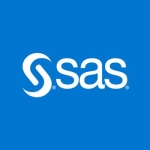
Apache Kafka Valuable Features
Apache Kafka offers unique data streaming. It allows the use of data in motion, allowing data to propagate from one source to another while it is in motion. This is valuable when data is not simply residing in a database.
View full review »Apache Kafka is particularly valuable for stream data processing, handling transactions, managing high levels of transactions, and orchestrating stream mode data.
View full review »NB
NakulBali
Works
There is a thin line between a normal queuing system, such as ActiveMQ or RabbitMQ, and a streaming system like Apache Kafka. Apache Kafka is effective when dealing with large volumes of data flowing at high speeds, requiring real-time processing. It was useful for us in receiving constant recharge information for customers. Queuing systems, however, excel at providing acknowledgment of messages, which is not a feature of streaming systems.
View full review »
Buyer's Guide
Apache Kafka
October 2025
Learn what your peers think about Apache Kafka. Get advice and tips from experienced pros sharing their opinions. Updated: October 2025.
869,785 professionals have used our research since 2012.
VU
VishalUmredkar
Sr. Lead - Engineering at GlobalLogic
Kafka is scalable to any degree we want, and it has several connectors available for integration in multiple languages, making it easier for integration. Additionally, it is 100% stable for our use cases.
View full review »I appreciate that Apache Kafka is fast and secure thanks to implementing it with AWS, allowing me to secure it on a high level. It's fast with a good connection, and the different types of connections are a good thing for me, helping our team that uses it, which is very helpful.
The impact of Apache Kafka's scalability features on my organization and data processing capabilities depends on how many messages each company wants to receive. With a high throughput, it helps to have more brokers and partitions. If you are a company that doesn't need that many messages, I won't say it will help you a lot, but on the other hand, it can change significantly.
View full review »The real-time data processing capability of Apache Kafka is a significant pro. We also find Kafka to be relatively stable under large data volumes and its performance to be consistent. The convenience in setting up after major problems like data center blackouts is a notable feature.
View full review »Kafka makes data streaming asynchronous and decouples the reliance of events on consumers.
It was the first of its kind to provide a streaming pipeline, setting a new component in the tech architecture and ecosystem. It allows continuous messaging without impacting performance.
View full review »The most valuable feature of Kafka is the Kafka Streams client. Unlike other systems like Flink or Spark Streaming, you don't need a separate engine to do real-time transformations and analytics. The amount of data that can be streamed into the platform and the scalability are also significant benefits.
View full review »We are managing our data by topics. Splitting topics is more effective for us. Apache Kafka is very fast and stable. It offers scalability with ease and also integrates well with our tools. Fault tolerance is a good feature, and it also has high throughput rates.
View full review »One of the major features that we are currently exploring, which is coming from my previous experience as well, is a multiple PubSub model kind of architecture. We have one hub data, which is the IBM DB2 system that banks use for their daytime transaction tracking from OLTP systems. We want to use the data on different platforms. So, we are trying to use Kafka in a model where it will be a publisher onto multiple messaging queues. These different messaging queues belong to different business units, where we are segregating the data lake we are building into different domains. For example, HR data is becoming too sensitive, so they don't want to give it to any other businesses. We are working on a common publisher and multiple subscriber model, which I feel is much more easily implementable using Kafka.
The other part that we are trying to implement, and which is in its very near center stages, is to see if we can make it future-ready. Right now, in the Middle East, there are not many cloud subscribers like DCP AWS and Azure. It is all on-premise. But it'll be there just in the next two or three years. So, we are trying to see if we can have these Kafka models working from a future perspective wherein instead of dumping some of the data into a data lake, we can directly dump it into solutions like DCP BigQuery for real-time analytics. This is just for the use cases, which are for real-time analytics. This data will definitely also be there in the data lake as that is the intention of keeping it.
But using Kafka, we are trying to see if we can make these subscribers ready to use these DCP BigQuery platforms for real-time analytics. It's still in the remittance stages, but those are still use cases.
View full review »Apache Kafka's most valuable features include clustering and sharding. Though we have not started using Apache Kafka Streams in our company, I have heard that it is one of the good features of the product we plan to use. The good features let you replay and reconsume messages in Apache Kafka, allowing you to have multiple consumer groups. The rebalancing feature of the product is also useful since if one consumer dies, then Apache Kafka does a rebalancing. With Apache Kafka, we use clustering, sharding, and partitioning features in our company.
The use of Kafka's logging mechanism has been extremely beneficial for us, as it allows us to sequence messages, track pointers, and manage memory without having to create multiple copies. We are currently on a legacy version and have found that the latest version of Kafka has solved many of the issues we were facing, such as sequencing, memory management, and more. Additionally, the fact that it is open source is a major benefit.
View full review »The most valuable feature of Apache Kafka is Kafka Connect.
View full review »Apache Kafka is an open-source solution that can be used for messaging or event processing.
View full review »I'm happy with the scalability and the ability to kind of replay the topics if you wish. So, it can give you that flexibility.
View full review »We appreciate the ability to persistently and quickly write data, as well as the flexibility to customize it for multiple customers. Additionally, we like the ability to retain data within Apache Kafka and use features, such as time travel to access past customer data. The connection with other systems, such as Apache Kafka and IBM DB2.
View full review »One of the most valuable features I have found is Kafka Connect.
View full review »The message bus capabilities, basically sending messages to it, and the way it handles events or messages is pretty good. The throughput was good. Generally, it was a good component.
GT
George Thomas
Lead Architect at a financial services firm with 1,001-5,000 employees
The main advantage is increased reliability, particularly with regard to data and the speed with which messages are published to the other side.
The connectivity from the application is straightforward, as is the API integration.
These are some of the most valuable features of this solution.
In terms of partition tolerance, message reliability is also present, which is a very good feature from the customer's perspective.
View full review »LJ
LijomonJose
System Architect at UST Global España
For example, when you want to send a message to inform all your clients about a new feature, you can publish that message to a single topic in Apache Kafka. This allows all clients subscribed to that topic to receive the message. On the other hand, if you need to send billing information to a specific customer, you can publish that message on a topic dedicated to that customer. This message can then be sent as an SMS to the customer, allowing them to view it on their mobile device.
View full review » Regarding the most valuable feature in Kafka, I would say it's scalability. The publisher-subscriber pattern and low latency are also essential features that greatly piqued my interest.
MB
Mohamed BENTAHAR
Architect at Agence Française de Développement
We use Kafka for mapping and ThoughtSpot data from one IT system source to the destination. We also prefer it to exchange data from our internal IT systems.
The feature I find most valuable is the classification feature. Kafka enables you to tag content with a category.
View full review »NK
Nitin Kamble
Director at Tibco
The most valuable feature is the speed at which the solution can be deployed.
View full review »Kafka is an open-source tool that's easy to use in our country, and the command line interface is powerful.
View full review »The real-time nature and the ability to use multiple offsets are the most beneficial features of Apache Kafka for our data streaming needs. This allows us to replay the same messages using different offsets. Although I haven't set up Kafka's scalability and fault tolerance myself, I know it can be configured with redundancy and fallback options. We primarily consume the messages using different clients, so the setup for fault tolerance and redundancy is transparent to us.
It's quite flexible and comparable to other solutions like ActiveMQ in terms of features and guarantees, especially with offsets for message handling. While ActiveMQ may be preferred in some use cases requiring guaranteed message delivery, Kafka's offset management provides similar functionality. Overall, I would recommend Kafka for real-time data streaming without hesitation.
View full review »
Kafka's most valuable feature is its user-friendliness.
View full review »DZ
Dimitrios Zigkos
Enterprise Architect at Smals vzw
There are numerous possibilities that can be explored. While it may be challenging to fully comprehend the potential advantages, one key aspect is the ability to establish a proper sequence of events rather than simply dealing with a jumbled group of occurrences. These events possess their own timestamps, even if they were not initially provided with one, and are arranged in a chronological order that allows for a clear understanding of the progression of the events.
View full review »The most valuable feature is how persistent it is. For example, we are able to reprocess messages when we need to, we're able to recover methods to consume them.
View full review »The most valuable feature of Apache Kafka is the clustering which is very easy to scale and we have multiple servers all over our platforms. It has been useful for stability and performance.
View full review »It is a useful way to maintain messages and to manage offset from our consumers.
View full review »SK
SunilKalva
Barista Brewing Espresso at Linkedln
I love the simplicity of the library and the design as well as the architectural concept which is like horizontal scaling.
The high availability is valuable. It is robust, and we can rely on it for a huge amount of data.
The Kafka Streams capability is also valuable. We get many options to build applications on top of Kafka.
View full review »The most valuable feature is the messaging function and reliability.
View full review »With Kafka, events and streaming are persistent, and multiple subscribers can consume the data. This is an advantage of Kafka compared to simple queue-based solutions.
View full review »AV
Andre Visser
Technical Director at Metrofibre Networx
As a software developer, I have found Apache Kafka's support to be the most valuable. The support team sends available information regarding the library and how to use the plugins. The solution is easy to integrate with any of our systems. We have other alternatives, but this is the one that seems to be the most popular database support.
View full review »The most valuable feature of Apache Kafka is its versatility. It can solve many use cases or can be a part of many use cases. Its fundamental value of it is in the real-time processing capability.
You need time-sensitive technology now, particularly in the analytics space. We have looked at using change data capture and Apache Kafka to modernize our analytics capabilities. Additionally, microservices can be used to capture events from legacy systems.
View full review »Kafka is scalable. It can manage a high volume of data from many sources.
View full review »Apache Kafka has good integration capabilities and has plenty of adapters in its ecosystem if you want to build something. There are adapters for many platforms, such as Java, Azure, and Microsoft's ecosystem. Other solutions, such as Pulsar have fewer adapters available.
View full review »All the features of Apache Kafka are valuable, I cannot single out one feature.
View full review »The most valuable feature is the documentation, which is good and clear.
View full review »Besides better stability and scalability, there are no additional functionalities I'd like to see. Kafka is good at what it does.
View full review »This solution is robust and delivers messages quickly. It's a simple but good product.
ME
Mario Estrada
CTO at Estrada & Consultores
The solution is good for publishing transactions for commercial solutions whereby a duplicate will not affect any part of the system.
The solution is very easy to set up.
The stability is very good.
There's an online community available that can help answer questions or troubleshoot problems.
The scalability of Kafka is very good.
It provides high throughput.
View full review »DP
DustyPressley
Sr Technical Consultant at a tech services company with 1,001-5,000 employees
The most valuable features are the stream API, consumer groups, and the way that the scaling takes place.
RG
Reza Gholami
Senior Technology Architect at a tech services company with 10,001+ employees
Resiliency is great and also the fact that it handles different data formats. There is one data format that's universal across multiple application domains — Avro. It's pretty universal compared to JSON, XML, SQI, and other formats.
View full review »The processing power of Apache Kafka is good when you have requirements for high throughput and a large number of consumers.
View full review »The most valuable feature is that it can handle high volume.
Apache Kafa is open-source and some of our clients are interested in becoming more involved in that.
View full review »JA
Jack Angoe
Technical Lead at Interface Fintech Ltd
It just works and it's super fast. We were struggling with a Rabbit MQ cluster, so the Apache cluster is way easier.
I believe that the speed, and especially the performance, are very good features.
Also included is a cluster with built-in failover.
It is the performance that is really meaningful.
In terms of features, we are satisfied. I don't require any additional features. I don't believe we require any additional features at this time.
View full review »RH
Rene Haburai
Freelance at SÍŤ spol. s.r.o.
I like Kafka's flexibility, stability, reliability, and robustness.
View full review »RP
Ravi-Patel
Assistant Professor at CHAROTAR UNIVERSITY OF SCIENCE AND TECHNOLOGY
The valuable features are the group community and support.
View full review »NC
Narendra Chauhan
Chief Technology Officer at a tech services company with 1-10 employees
In my view, valuable features relate to microservices architecture and working on KStream and KSQL DB as a microservices event bus. The solution integrates very well.
The most valuable feature is the support for a high volume of data.
View full review »RH
Rene Haburai
Freelance at SÍŤ spol. s.r.o.
The most valuable features of this solution is the architectural style of messaging or event streaming. First is important to understand that anything can be represented as an event=message e.g new order, status change, confirmation, information from IoT or from monitoring system. Each message can be transport very quickly from the source (producer) into consumer(s). Messages can be changed in the fly - streaming messaging.
Messages can be process exactly at once or at least once. Ordering of messages depends on just configuration setup.
When comparing it with other messaging and integration platforms, this is one of the best rated. Message store is out of the box functionality. Messages are automatically stored based on parameter setup of retention policy. Messages can remain for longer, which can be configured from a few milliseconds up to years. Scalability and availability of messages can be changed with zero maintenance window.
You don't need extra clusters to achieve high availability for the messaging system like Veritas, PowerHA or other.
One platform for classical messaging, real time messaging, ETL, message streaming.
ETL can be realised with connectors into external systems which also could run in more instances. Exists a lot of ready to use connectors and new ones can be developed.
View full review »The stream processing is a very valuable aspect of the solution for us.
View full review »Everything in Kafka is amazing.
The most valuable feature for us is the event monitoring.
It is easy to configure.
View full review »We get amazing throughput. We don't get any delay.
View full review »The most important feature for me is the guaranteed delivery of messages from producers to consumers.
View full review »LP
Lakshmanan Panneerselvam
Owner at Binarylogicworks.com.au
The most valuable feature is the performance.
View full review »MN
MoulaliNaguri
Project Engineer at Wipro Limited
When we're working with big data, we need a throughput computing panel, which is something that Kafka provides, and something we find extremely valuable. It helps us support computing and ensures there's no loss of data. It can even do replication with some data.
The delivery of data is it's most valuable aspect.
It's an easy to use product overall.
The solution is quite mature.
It's an open-source product, which means it doesn't cost us anything to use it.
View full review »OT
OnurTokat
Senior Big Data Developer | Cloudera at Dilisim
Kafka has a good storage layer on its side. I can store this data if it's streaming, and, if we do encounter any error, for example, on the network or server, we can later use the data to do some analytics on it using the Kafka server.
Kafka provides us with a way to store the data used for analytics. That's the big selling point. There's very good log management.
Kafka provides many APIs that can be flexible and can be placed or expanded using the development life cycle. For example, using Java, I can customize the API according to our customers' demands. I can expand the functionality according to our customer demands as well. It's also possible to create some models. It allows for more flexibility than much of the competition.
View full review »SG
SergeyGoncharov
Developer Infrastructure at Outbrain
It's very easy to install and it's pretty stable.
The possibility to have connectors is very helpful. Another valuable aspect is that it's mature and open-source.
From a scalability point of view, you just add servers and it's scalable. The whole architecture is very scalable.
View full review »- High availability
- High throughput
With such a large digest, I was genuinely impressed at the process being almost real-time.
KQ
Kevin Quon
Senior Technical Architect at a computer software company with 51-200 employees
I like the performance and reliability of Kafka. I needed a data streaming buffer that could handle thousands of messages per second with at least one processing point for an analytics pipeline. Kafka fits this requirement very well, as it is a fast, distributed message broker. It definitely does exactly what it is designed to do.
View full review »The most valuable features are performance, persistent messaging, and reliability. It allows us to persist the message for a configurable number of days, even after it has been delivered to the consumer. The message delivery is also fast.
View full review »- Message Retention: Unlike regular message queues, messages stay in Kafka after clients consume them. A message can be consumed over and over again by the same or a different client until topic retention (by max data size or oldest message timestamp) kicks in and the oldest messages get deleted. This can be very handy in many scenarios: handling bugs in software, testing code, simple distribution of message processing, and routing messages to many different consumers simultaneously.
- Horizontal Scalability: To add more capacity, both in terms of storage and performance to a Kafka cluster, you just need to add more servers. Regular message queues usually work in a master-slave configuration and do not scale very well horizontally.
- Simplicity in operations.
We are using Kafka consumer and producer.
View full review »- Distributed
- Persistence
- Offset management by consumer
The ability to partition data on Kafka is valuable. But Kafka needs support and management. It is better to have it fully managed on the cloud.
The only reason I give Kafka as product a low rating is because there are far superior and cheaper alternatives in cloud-based solutions, where we save money on manpower, electricity, servers, datacenters, networking, etc.
In fact, this is the view I have for pretty much all open source software compared to cloud based services. They just make things cheaper, faster, scalable and manageable. Kafka is good, but Kafka as a cloud service is awesome!!
This is a relative rating (compared to cloud services), not that something is wrong with Kafka. I hope that is clear.
View full review »Kafka, as compared with other messaging system options, is great for large scale message processing applications. It offers high throughput with built-in fault-tolerance and replication.
Messaging systems in general allow for logical and temporal decoupling between applications. Given Kafka's high availability, it's a great option to use if applications require availability, but not real-time processing.
If a downstream system is offline, messages can queue up and process when possible, but the user may not necessarily need to be aware of any issues.
A messaging-based architecture becomes important as a set of micro-services need to scale with high availability. Kafka is a great choice for messaging with such architecture.
View full review »Real-time streaming and persistence into distributed nodes. It provides a simple mechanism to create, publish, and subscribe.
View full review »Apache Kafka is actually a distributed commit log. That is different than most messaging and queuing systems before it. I find the ability to write data at one velocity and have subscribing consumers read at different velocities to be the best feature.
View full review »- Replication, partitioning, and reliability are the most valuable features.
- Even if one of my clusters fails, the replication factor of a topic makes sure that I have the data available for processing, so I won't lose any of it.
- Partitioning enables me to process the parallel requests. It helps in reaching the throughput.
- Scalability
- Reliability
- Ease of use
One of the best features which I have worked with is replay.
View full review »Excellent speeds for publishing messages faster.
View full review »- Supports more than 10,000 events/second.
- Scalability
- Replication
It is a good product for event-driven architecture.
View full review »The most valuable features are topic-based eventing, scalability, and retention periods.
View full review »We use the product for high-scale distributed messaging. The processing capability of the product is enormous. Being a distributed platform, multiple consumers can sync with it and fetch messages.
Another great feature is the consumer offset log which tells you where the consumer left and where he needs to start again. Consumers aren’t required to code and put extra effort to maintain the offset.
View full review »The most valuable features to me are replication, partitioning and easy integration with Apache Spark, which we use quite a bit for distributed processing.
Replication is good for high availability. It provides additional safety for data in case of node failure or data center outage. Partitioning is a really useful feature for parallelizing processing. We use Apache Spark to process data from a Kafka queue, and Spark is able to assign one executor to each Kafka partition. The more partitions we have, the more threads we can use to process data in parallel. This helps us achieve really good throughput.
View full review »The Kafka Streams library gives quite a bit of functionality. The connectors provided by the solution are valuable.
View full review »The solution has improved our functionality, it's one of the best streaming platforms I've used.
View full review »Buyer's Guide
Apache Kafka
October 2025
Learn what your peers think about Apache Kafka. Get advice and tips from experienced pros sharing their opinions. Updated: October 2025.
869,785 professionals have used our research since 2012.






































